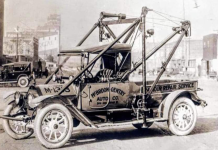Ever wondered what made Wolfman Jack such an unforgettable voice on the airwaves? Known for his gravelly voice and eccentric personality, Wolfman Jack wasn’t just a DJ; he was a cultural phenomenon.
Born Robert Weston Smith in 1938, he crafted his Wolfman persona by blending rock ‘n’ roll with a wild, energetic delivery that captivated listeners across the United States.
His broadcasts in the 1960s and 1970s were an eclectic mix of music, humor, and theatrics, making him a beloved figure in the radio world.
One of the keys to Wolfman Jack’s success was his ability to connect with his audience. He made listeners feel like they were part of an exclusive club, with his late-night shows providing a soundtrack for their adventures.
His distinctive howl and playful banter set him apart from other DJs of the time.
Wolfman Jack’s influence extended beyond radio. He appeared in films like “American Graffiti” (1973), where he played himself, cementing his place in pop culture history.
His television appearances on shows like “Midnight Special” in the 1970s brought his dynamic style to a broader audience, proving his versatility as an entertainer.
His unique style wasn’t just about the music; it was about the experience.
Wolfman Jack’s shows were an audio journey, filled with surprises and a sense of spontaneity that kept listeners coming back for more.
Whether he was spinning the latest hits or sharing amusing anecdotes, his charisma and enthusiasm were infectious.
Wolfman Jack’s legacy lives on as a symbol of the golden age of radio.
His innovative approach and larger-than-life persona paved the way for future generations of broadcasters, ensuring that his howl will echo in the annals of radio history forever.
He continued to influence the airwaves until his death in 1995, leaving behind an indelible mark on the industry.






